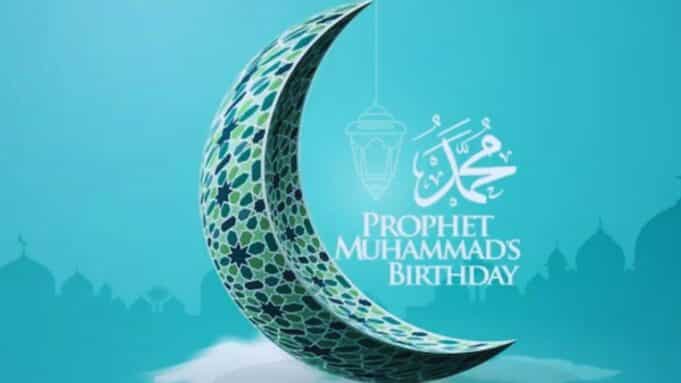The Birthday of Prophet Muhammad, known as Mawlid al-Nabi or Maulidur Rasul, is observed on the 12th day of Rabi’ al-Awwal in the Islamic calendar. In 2025, it is expected to fall on September 5, though the date may vary by moon sighting. This day holds deep significance for Muslims, marking the birth of the final Prophet and Messenger of God.
Traditions include gatherings in mosques, reciting salawat, learning about the Prophet’s life, and acts of charity. While celebrations differ across regions, the central purpose is to reflect on his teachings and character. In this article, I will share the history, significance, celebrations worldwide, and key facts about the Birthday of Prophet Muhammad.
When is the Birthday of Prophet Muhammad 2025?
The Birthday of Prophet Muhammad, known as Mawlid al-Nabi or Maulidur Rasul, is observed annually on the 12th day of Rabi’ al-Awwal in the Islamic calendar. In 2025, it is expected to fall on Friday, September 5, though the date may differ depending on the moon sighting in each country.
Muslim communities worldwide often adjust their celebrations based on local religious authorities’ announcements. This day is both a spiritual and cultural occasion, marked by gatherings, prayers, and charitable acts. Since the Islamic lunar year is shorter than the Gregorian calendar year, the date shifts earlier each year.
What is the History of the Birthday of Prophet Muhammad?
Prophet Muhammad was born in Mecca in 570 CE, a year remembered by historians as the Year of the Elephant. His early life was marked by humility, honesty, and leadership, even before his prophethood. While the Prophet himself did not celebrate his birthday, historical accounts show that commemorations began in the 12th century under Muslim rulers who organized public gatherings, Quran recitations, and acts of charity.
Over time, the tradition spread across the Islamic world, evolving into the diverse Mawlid celebrations we see today. These events not only honor his birth but also reflect on his life and teachings.
Why is the Birthday of Prophet Muhammad Important in Islam?
The Birthday of Prophet Muhammad holds deep meaning for Muslims, as it commemorates the birth of the final Messenger of God. It’s a time to reflect on his role in guiding humanity, his exemplary character, and his mission to spread justice, compassion, and faith. Many use this day to learn more about his teachings, strengthen their relationship with Allah, and pass Islamic values to future generations.
The occasion fosters unity among communities and encourages acts of kindness, echoing the Prophet’s message of mercy for all creation. For many, it’s not only a historical remembrance but also a renewal of faith.
How is the Birthday of Prophet Muhammad Celebrated Worldwide?
Celebrations for the Prophet’s Birthday vary across cultures but share common themes of worship, education, and charity. In Middle Eastern countries, events include mosque lectures and night prayers. In South Asia, Muslims hold processions, decorate streets, and distribute food. Southeast Asia, especially Malaysia and Indonesia, features Quran recitations, storytelling competitions, and public speeches.
African nations organize community feasts and cultural performances, while Muslim communities in the West often hold educational seminars and interfaith events. Regardless of location, the day is marked by a sense of unity, gratitude, and reverence for the Prophet’s legacy.
Read More: Respect For Parents Day 2025
How is Mawlid al-Nabi observed in Singapore and Malaysia?
In Singapore, Mawlid celebrations often include religious lectures, Quran recitations, and charitable drives. A notable initiative is the Prophet Muhammad’s Birthday Memorial Scholarship Fund, which provides financial aid to students. In Malaysia, the day is a public holiday, featuring mosque programs, parades in certain states, and community service events.
Historically, large processions were common, but in recent years, the focus has shifted toward spiritual talks and acts of charity. Both countries emphasize educating younger generations about the Prophet’s life, ensuring that his values remain central to the celebrations.
Are There Differences in How Muslims View the Prophet’s Birthday?

Yes, Muslims hold differing views on celebrating the Prophet’s Birthday. Many scholars and communities encourage it as an opportunity to remember and honor the Prophet’s life, provided it aligns with Islamic principles. They view it as a means to strengthen love for him and promote learning.
Others, however, believe that since neither the Prophet nor his companions observed the occasion, it should not be treated as a formal religious event. This difference in opinion leads to varied practices across the Muslim world, but mutual respect and understanding remain essential in discussions about Mawlid.
Educational and Charitable Initiatives Linked to the Prophet’s Birthday
Around the world, Mawlid al-Nabi inspires educational and charitable projects. In Singapore, the Prophet Muhammad’s Birthday Memorial Scholarship Fund supports students in need, reinforcing the Prophet’s emphasis on learning. In many Muslim countries, mosques and community centers host lectures, Quran classes, and storytelling sessions about his life.
Charitable acts such as distributing food to the poor, donating to hospitals, and funding community development projects are also common. These initiatives not only honor the Prophet’s teachings but also create lasting benefits for society, reflecting his commitment to compassion, generosity, and social justice.
Read Also: Martyrdom of Imam Reza 2025
Fun and Meaningful Facts About the Prophet’s Birthday
- The Prophet was born in 570 CE, known as the Year of the Elephant.
- Many historians believe he was born on a Monday, which he personally honored by fasting on that day.
- Some traditions suggest that both his birth and his passing occurred on 12 Rabi’ al-Awwal.
- Mawlid celebrations began centuries after his lifetime, becoming popular during the Fatimid and Ottoman periods.
- In several countries, the day is also used to promote peace, interfaith dialogue, and community service.
Birthday of Prophet Muhammad Dates 2025–2030
| Year | Islamic Date (12 Rabi’ al-Awwal) | Gregorian Date | Day of the Week |
| 2025 | 12 Rabi’ al-Awwal 1447 AH | September 5 | Friday |
| 2026 | 12 Rabi’ al-Awwal 1448 AH | August 25 | Tuesday |
| 2027 | 12 Rabi’ al-Awwal 1449 AH | August 15 | Sunday |
| 2028 | 12 Rabi’ al-Awwal 1450 AH | August 3 | Thursday |
| 2029 | 12 Rabi’ al-Awwal 1451 AH | July 23 | Monday |
| 2030 | 12 Rabi’ al-Awwal 1452 AH | July 13 | Saturday |
Dates are subject to moon sighting differences in each country.
Also Read: Mary Prince Day in Bermuda 2025
Frequently Asked Questions (FAQs) about the Birthday of Prophet Muhammad
Is the Birthday of Prophet Muhammad a public holiday?
Yes, in many Muslim-majority countries, but not everywhere.
Why does the date change each year?
The Islamic calendar is lunar, making it about 11 days shorter than the Gregorian year.
How do children participate in Mawlid events?
Through school programs, storytelling, and community service activities.
What foods are prepared for this day?
Dishes vary by culture, from sweet desserts in the Middle East to festive rice dishes in Asia.
Is the celebration the same in all Muslim countries?
No, customs differ widely, reflecting local traditions and interpretations.
Conclusion
The Birthday of Prophet Muhammad 2025 is more than a commemoration of his birth. It is a time for Muslims to reflect on their life, teachings, and enduring influence. Observances range from prayers and educational programs to acts of charity, all rooted in the values he embodied.
While customs vary globally, the spirit of the day unites communities in faith, gratitude, and the pursuit of good deeds. By remembering his example and striving to follow his guidance, Muslims renew their connection to the Prophet’s message of mercy, justice, and compassion for all.















